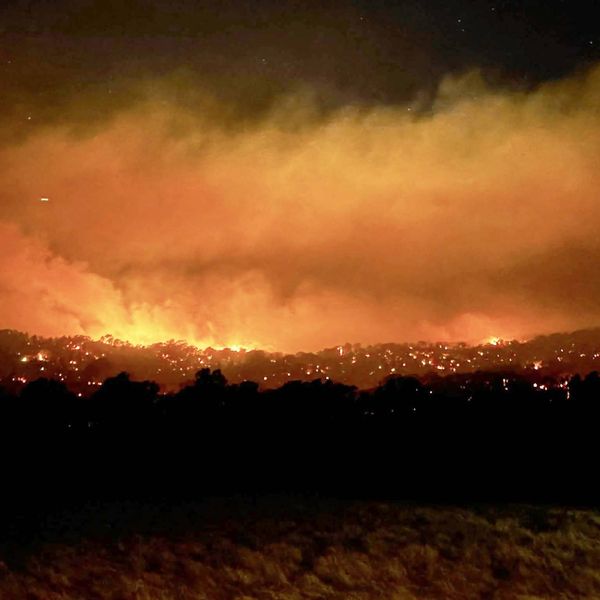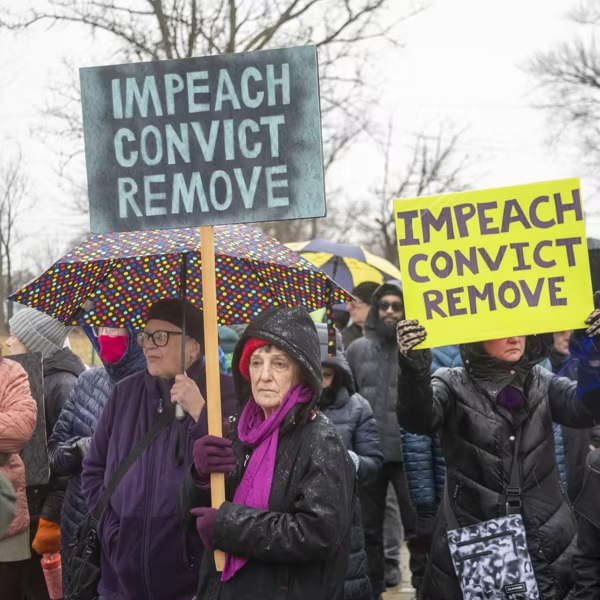So, there we have it. The seven-year task undertaken by hundreds of the world's leading scientists, who sifted through thousands of the latest peer-reviewed studies examining the causes, impacts and mitigation options of climate change, is over.
The last of the Intergovernmental Panel for Climate Change's (IPCC) three "working group" reports was published yesterday in Berlin and the take-home message was crystal clear: "The high-speed mitigation train needs to leave the station very soon and all of global society needs to get on board," said the chair, Rajendra Pachauri.
This is now the fifth time that the IPCC has been through this Herculean process of summarising the latest climate science and repackaging it as digestible information for the world's governments and policymakers. The message from the IPCC over the past two decades has been consistently clear and compelling. For anyone to downplay or deny its findings would be irresponsible, short-sighted and, above all, a gross failure of risk analysis.
This is the last time that the IPCC will issue one of its landmark reports before the all-important global deal on climate change needs to be signed by countries in Paris in December next year. Perhaps even more significantly, though, this will be the last IPCC assessment report before the end of this decade - a decade in which many international organisations say global greenhouse gas emissions need to peak, then start their rapid decline, if we are to have an odds-on chance of staying beneath the "safe" threshold of 2C of warming.
There is no time left for us to wait another seven years to hear what the IPCC has concluded. Procrastination and delay are now our worst enemies. We must sincerely thank these scientists for their hugely important contribution to our collective understanding about climate change, and the risks it presents, but we are now on our own. This is it. Our collective fate is on our own hands and we must move forward with urgency and clarity of purpose.
Obstacles remain in the road ahead - most notably, vested interests, blinkered ideology and political short-termism - but the IPCC has made it abundantly clear that the lack of available time means we must press on regardless and secure the rapid transition away from polluting fossil fuels and towards low-carbon, sustainable sources of energy. The IPCC has shown clearly that those who once doubted the science and now fashionably claim that we should "just adapt" to climate change are plain wrong. It's not an either/or choice between adaptation and mitigation. We must do both - and urgently. Tomorrow has no room for yesterday's fossil fools, as I heard one person say in Berlin.
Given the urgency of the task ahead, it is worth just reminding ourselves what the IPCC has collectively told us in each of its three new working group reports, the first of which was published last September in Stockholm. The IPCC will publish an official synthesis of the three reports in Copenhagen in October, but here's my own synthesis report in - as is the vogue - less than 140 characters:
Climate change is real. We are to blame. It will get worse if we fail to act. The solutions are available and affordable. But time is short.
And if that's still too long to digest, here's my own five-word summary for policymakers:
Please. Get. On. With. It.
What this new working group report on mitigation explains to the world is that those who say leaving fossil fuels in the ground will cripple the global economy are flat-out wrong. In fact, the IPCC showed that the impact of mitigation policies, such as a tripling of renewables, will not be the brake on economic growth that many blockers still desperately try to claim. In fact, it will be negligible, confirmed the IPCC: 0.06 of a percentage point annually throughout the rest of the century.
As Prof Ottmar Edenhofer, the report's co-chair, said yesterday:
"It will not cost the earth to save the planet ... This report outlines the challenges, but it provides hope. Modest hope."
Each nation will have its own ability, responsibility and opportunity to act, but the direction of travel for all is clear. The transition must be urgent, but it must also be an equitable and just transition. The IPCC has helpfully unlocked the door and switched on the light for the room marked "mitigation" that, for many, was too daunting a prospect to consider entering.
But there's further reason for optimism. What the IPCC admitted it could not include in its economic assessments were all those co-benefits that are delivered by switching to clean energy systems. Economists seem to view the world around them through telescopes smeared with jam. Their field of vision is narrow and the little they can see is obscured further still by a sticky mess of formulas, assumptions and abstractions.
As we saw in working group two last month, which examined the impacts of climate change, as well as working group three, economists seem unable to factor in the co-benefits of a clean-energy transition, such as improved human health. They also struggle to incorporate the myriad "services" that natural ecosystems provide to humans. Nor can they incorporate the damage climate changes presents to these ecosystems, such as ocean acidification, extreme weather and rising sea levels.
Take all this into account, and reaching for a clean and sustainable energy future becomes even more compelling and urgent, even if you are unable to express it in terms of GDP or a profit-and-loss column.
However, for those that only see the world through such a financial prism, working group three still offers a very powerful message. it's time to take start moving your money out of fossil fuels. An increasing proportion of the global investment community is starting to sit up and take notice of the burgeoning divestment movement. The new IPCC report adds considerable extra authority and credibility to that drumbeat. Unchecked climate change, which is leading us towards a 4C world, presents a profound risk to food and water supplies, precious species and habitats and financial stability.
Hands up who wants to be the one to tell the next generation that we repeatedly chose to ignore all these warnings? I certainly don't. So, let's seize this remaining opportunity and act upon the timely roadmap provided to us by the IPCC.



